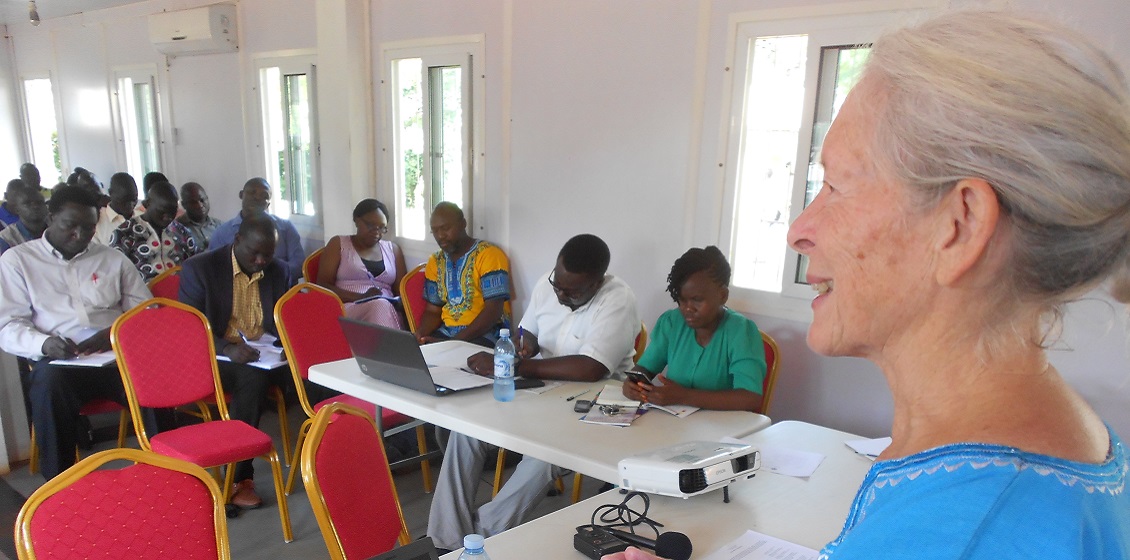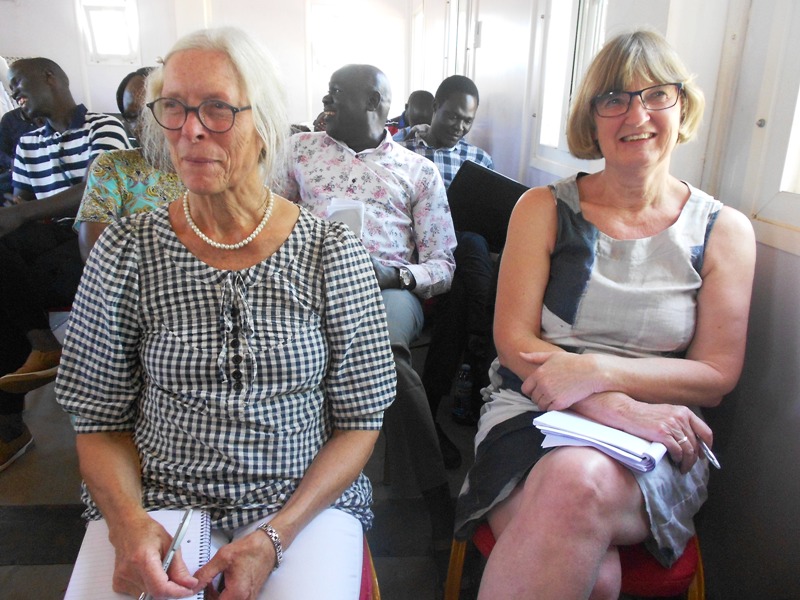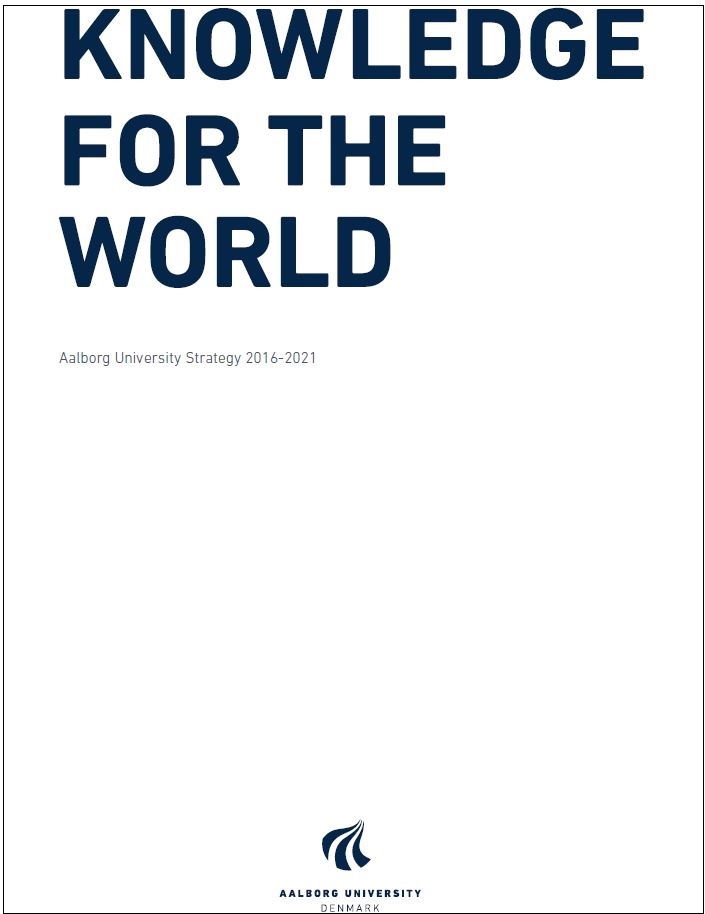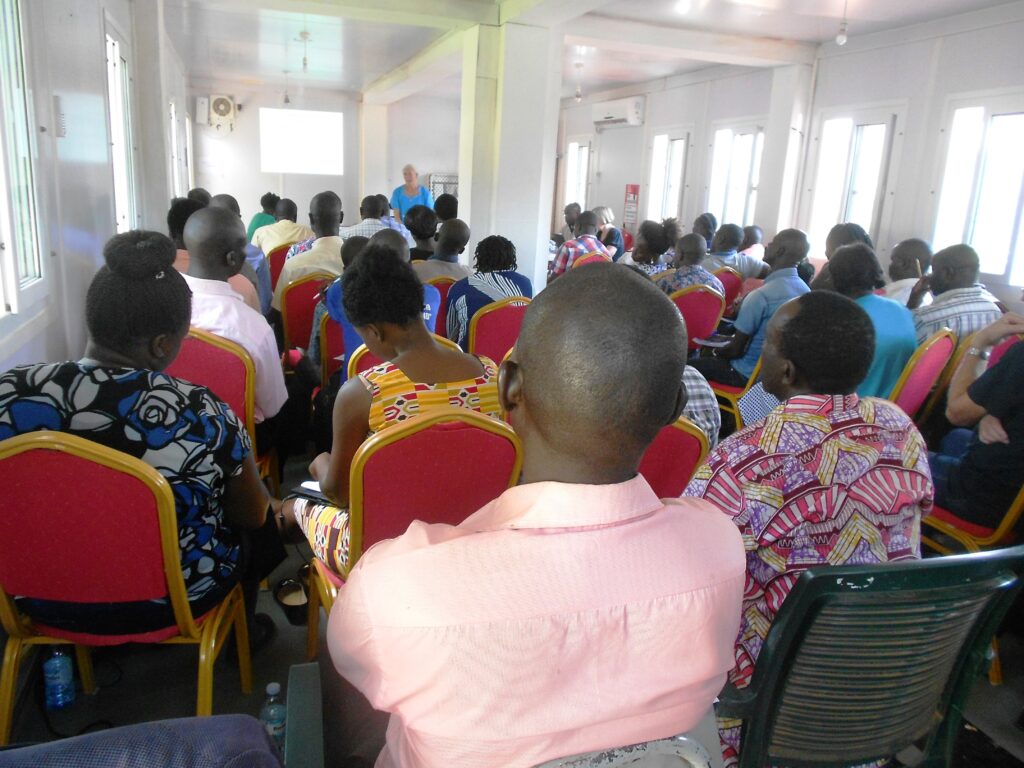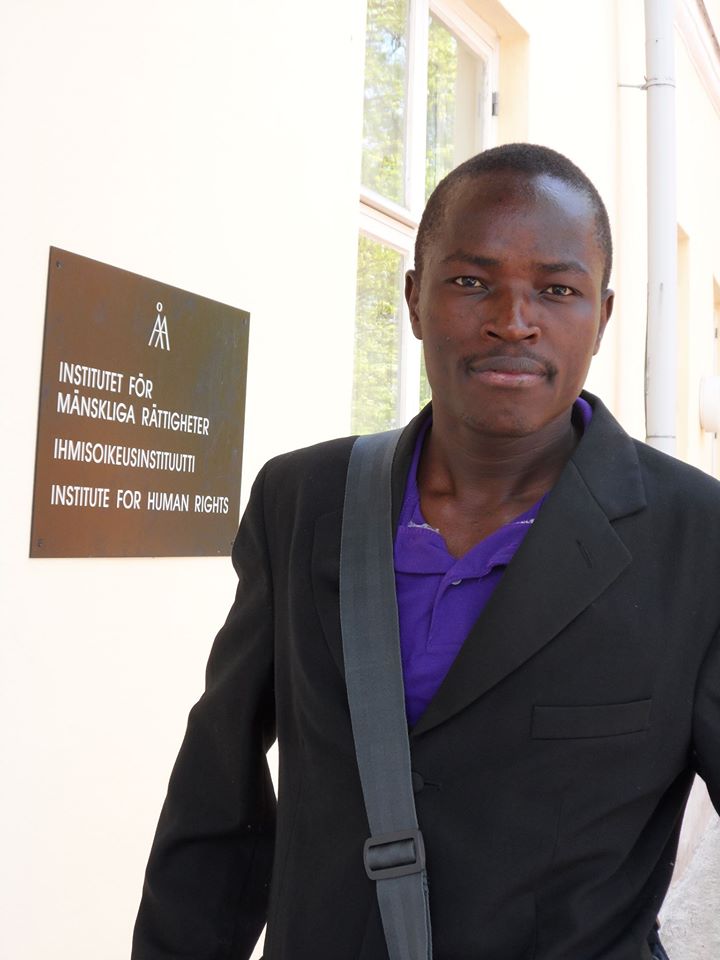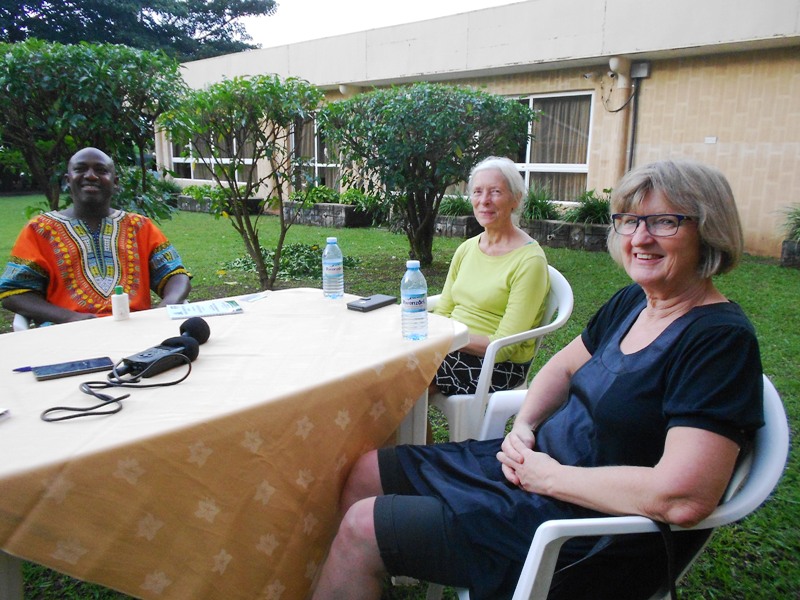On a cloudy October Friday at Gulu University, a few dozens of Masters students from the Faculty of Business and Development Studies fill up a little shelter set up by the Building Stronger Universities (BSU) project for workshops and conferences.
One group after another, from within themselves, they step forward to present their research works to a makeshift team of internal and external examiners. The audience includes their peers, their supervisors, and professors Inger Lassen and Iben Jensen from Aalborg University in Denmark.
The hall is buzzing as jokes and laughter interlude some of the submissions by the students and responses from the examiners.
For nearly a week the students have in their groups, working with their supervisors, been applying the Problem Based Learning (PBL) approach – visiting businesses within Gulu town and discussing with them their challenges and possible solutions.
Their study topics range from water supply within the community to the digital economy – for example the use of technology in delivering services such as electronic banking to people.
Every day they have been returning to the university to take stock of what they gathered from the field and also receive technical support from workshop facilitators who include Lassen and Jensen.
This Friday is the day for presentations, for judgement. The examiners award marks instantly. In the evening, when the last group has presented, the session to officially close the weeklong workshop starts.
“Today has been a very interesting day and I am really impressed by what the students have been able to do within such a short time,” says Lassen at the humble ceremony attended by the dean of students of the faculty, a representative of the University vice chancellor, and a delegation from the African Rural University (for women) who have visited to see how their colleagues at Gulu conduct business.
“It is not a competition between group members. It is about performance by the group,” stresses Lassen as she explains what is expected of the PBL approach to teaching and learning.
Lassen, Jensen and their colleague Hanan Lassen Zakaria of the Danish Centre for African Business (DANCAB) have been coming to Gulu since 2011, under the BSU project, to share their experience in teaching and learning in a South-North cooperative arrangement.
What is PBL?
“The idea [of PBL] is that you identify a societal problem, and then you acquire more knowledge about this problem. Sometimes you also try to solve it, but that’s probably the engineering sessions that do that. But in humanities and social science we work with the problem,” says Lassen in an interview. “Students work in groups where they work on that problem in society. And then you could say it is student centered, more than teacher centered.”
Ugandan schools and universities, to a large extent, still maintain the traditional learning style, inherited from the British, whereby the teacher or lecturer is seen to be in control of the learning process. Gulu is starting to look different.
“They [Gulu] realized that it was important to make some changes to that learning style, not least because employers were complaining that the students who graduated were not prepared for the job market,” Lassen says. “This is a different way of learning where the students take control of their own learning, and they have supervisors who supervise them. The main point is to involve society and get out of the ivory tower.”
Professor Jensen, whose experience with the student centred or project based method of learning runs from her student days at the University of Copenhagen, adds during the interview: “Gulu say they are working for transforming society. So that’s why Problem Based Learning is very good because students learn to define problems. And then they go and try to work on the problems but they are relevant to the students. We believe that students learn more with this method and that is the method we use at Aalborg University.”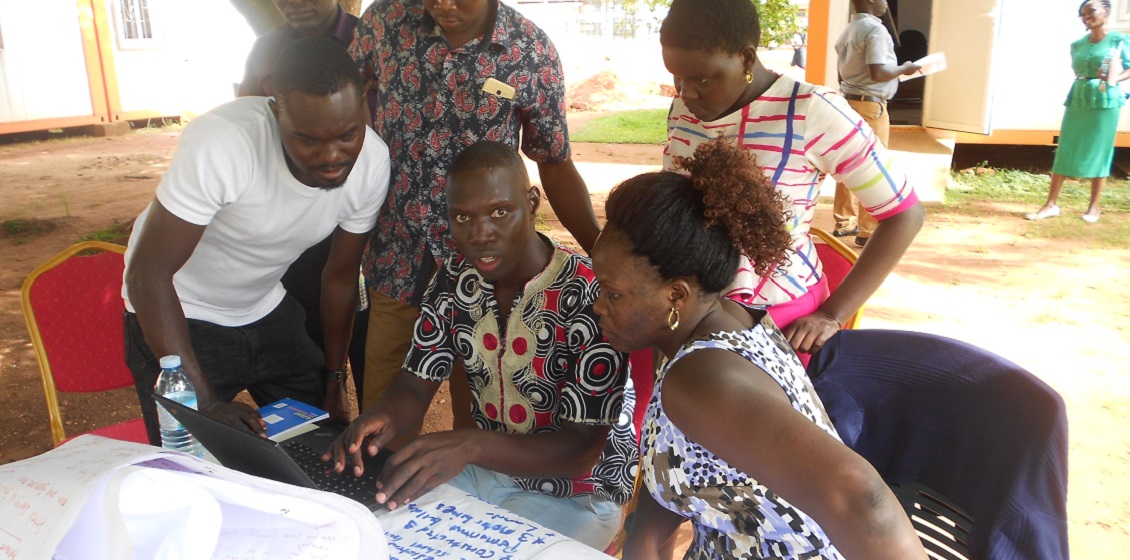
Zakaria (formerly with Aalborg and now an independent consultant), who has been working with BSU in Ghana, Tanzania and Uganda, says “there is a very big difference between what you see in terms of universities from the south and universities from the north,” stressing the need for the universities to learn from each other.
At the inception of BSU, Zakaria adds, if you look at publications, trainers, students, the north partners were far better in terms of what epitomises a university. For example, like, Alborg University, they had this problem based way of teaching and learning which was very much needed in most African countries. Most African universities were accused of producing graduates that were not relevant to the job market or to the needs of society.
Testimony
Daniel Oite did his fist degree in IT at Gulu University. In 2017 he rejoined Gulu to do his MA in Business Administration. He was exposed to PBL in 2018 during a similar workshop and he say that has greatly impacted his life.
“PBL motivates students to work together. After PBL everything changed. We have people here of 2012 who have not graduated just because of research but for us, immediately after PBL, everything changed. We thought that research was hard to do. PBL helped me to finish the course in the specified period (2and a half months), in record time.”
Oite adds: “After PBL I got a broader view of what research is. Before doing something you have to identify what the problems are, come up with objectives and from there you can move. I think PBL should be expanded beyond MBA [Master of Business Administration] and Public Administration.”
Oite and nine of his colleagues, all of whom were participants in the 2018 PBL workshop, are now working to establish a private centre in Gulu town to tackle business issues through the PBL approach and also give research technical support to students.
Karlo Ojok, the head of the Department of Development Studies says the faculty has now integrated aspects of PBL in all its programmes, both at graduate and undergraduate levels. “But we plan to implement them differently. For undergraduate we shall not have full implementation but for the graduate level we see that they should be able to implement it fully,” he says.
“It is a very transformative way of delivering our programmes and I see that it is what we need to consolidate. The students will be able to learn better compared to our previous method where the teacher has been dominating,” Ojok adds. “The most interesting thing with PBL is that the students do it themselves and that is what we call transformative learning. In transformative learning students get more involved than the teacher who is just facilitating.”
Lassen is so into PBL and believes that Gulu will continuously embrace PBL. “Somehow the pressure might come from the students because they really like this approach. But I think it would be important to institutionalise it more than it has been done. The approach is so popular and it also address real world issues and it goes well in hand with transforming society,” she says.
William Odinga Balikuddembe is a science journalist based in Kampala, Uganda


